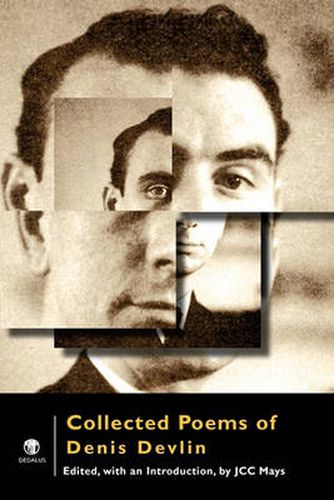Readings Newsletter
Become a Readings Member to make your shopping experience even easier.
Sign in or sign up for free!
You’re not far away from qualifying for FREE standard shipping within Australia
You’ve qualified for FREE standard shipping within Australia
The cart is loading…






This title is printed to order. This book may have been self-published. If so, we cannot guarantee the quality of the content. In the main most books will have gone through the editing process however some may not. We therefore suggest that you be aware of this before ordering this book. If in doubt check either the author or publisher’s details as we are unable to accept any returns unless they are faulty. Please contact us if you have any questions.
In 1934 Samuel Beckett named Denis Devlin and Brian Coffey as without question the most interesting of the youngest generation of Irish poets . When the first edition of the present volume appeared in 1989 (in what would prove to be the year of Beckett’s death), he signalled his appreciation with a brief message which concluded: Amends at last. Yet in recent years Devlin’s visibility has again faded. Though often cited as one of the great modernist and modernising influences on Irish poetry, his substantial body of work is both under-read and perhaps as often mis-read. As JCC Mays points out in his Introduction, Devlin’s writing has attracted readers who have taken it to stand for a kind which anticipates the ambitions of writing now, and which is cognate with the beginnings of post-modernism in other traditions. In Ireland, he has been taken as an exemplary poet of a kind at variance with the dominant antimodernist tradition and a kind of rallying-point. Of the relative popularity of his work during his years in Washington in the diplomatic service, Mays writes: Even so, the reputation he enjoyed rested partly upon misunderstanding.
Twenty years on from its original publication, this reissue affords contemporary readers the opportunity to re-evaluate a complex, often challenging body of work, while the Introductory essay by JCC Mays, since retired as Professor of Modern English and American Literature at University College Dublin, remains exemplary for its depth of learning, insight and even-handedness.
$9.00 standard shipping within Australia
FREE standard shipping within Australia for orders over $100.00
Express & International shipping calculated at checkout
This title is printed to order. This book may have been self-published. If so, we cannot guarantee the quality of the content. In the main most books will have gone through the editing process however some may not. We therefore suggest that you be aware of this before ordering this book. If in doubt check either the author or publisher’s details as we are unable to accept any returns unless they are faulty. Please contact us if you have any questions.
In 1934 Samuel Beckett named Denis Devlin and Brian Coffey as without question the most interesting of the youngest generation of Irish poets . When the first edition of the present volume appeared in 1989 (in what would prove to be the year of Beckett’s death), he signalled his appreciation with a brief message which concluded: Amends at last. Yet in recent years Devlin’s visibility has again faded. Though often cited as one of the great modernist and modernising influences on Irish poetry, his substantial body of work is both under-read and perhaps as often mis-read. As JCC Mays points out in his Introduction, Devlin’s writing has attracted readers who have taken it to stand for a kind which anticipates the ambitions of writing now, and which is cognate with the beginnings of post-modernism in other traditions. In Ireland, he has been taken as an exemplary poet of a kind at variance with the dominant antimodernist tradition and a kind of rallying-point. Of the relative popularity of his work during his years in Washington in the diplomatic service, Mays writes: Even so, the reputation he enjoyed rested partly upon misunderstanding.
Twenty years on from its original publication, this reissue affords contemporary readers the opportunity to re-evaluate a complex, often challenging body of work, while the Introductory essay by JCC Mays, since retired as Professor of Modern English and American Literature at University College Dublin, remains exemplary for its depth of learning, insight and even-handedness.